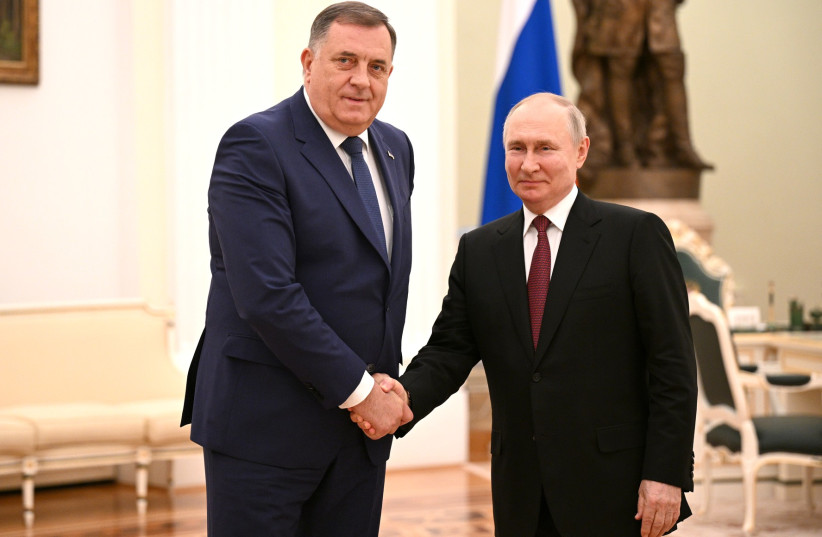Two US Special Forces F-16s flew over Bosnia and Herzegovina on Monday in a joint military exercise with local forces that served as a warning to Bosnian Serb leader Milorad Dodik and his followers, Radio Free Europe, a US state-owned international broadcaster reported late on Monday night.
Dodik's secessionist rhetoric had escalated in the last months, but has tempered in recent days, in light of US pressure, the broadcaster added.
The flyover came on the eve of January 9, also known as Republika Sprska Day, a holiday deemed unconstitutional by the Constitutional Court of Bosnia which marks the declaration of independence by local ethnic Serbs in 1992, a move which provoked the bloody civil war that followed, in which more than 100,000 people are estimated to have been killed, and about two million displaced.
"The training event was part of efforts...to exchange tactics, techniques, and procedures," the US Embassy in Sarajevo said on X, "as well as to demonstrate the United States’ commitment to ensuring the territorial integrity and sovereignty of BiH [Bosnia and Herzegovina]. The United States will not stand by while the Dayton Peace Agreement and BiH’s institutions are challenged."

The US-brokered Dayton Peace Accords guaranteed Bosnia as a single country but divided it into widely autonomous entities, the Bosniak-Croat Federation and the Republika Srpska (RS), a semi-autonomous entity made up mostly of Orthodox Christian ethnic Serbs.
Dodik's rhetoric has tempered amid pressure from the US
Milorad Dodik, leader of the RS, said on Monday he had no plans to seek secession, appearing to step back from earlier calls for a breakaway republic. In September, hundreds of Bosnian Serbs protested with Serbian and Russian flags at the border between the RS and the Bosniak-Croat Federation, the Associated Press reported.
In 2021, Dodik triggered the most serious political crisis since the 1992-95 war when he said he would pull the region out of key Bosnian state institutions, such as the judiciary, the tax system, and the joint armed forces. Dodik did not follow through on the threat, saying he would await a more geopolitically opportune moment to carry it out.
But he told Reuters in an interview in the RS capital Banja Luka on Monday that secession was not part of his plan: "We are not calling for revolution. We are not preparing for war, we are preparing for political decisions on the level of the state parliament and on the level of the Republika Srpska parliament," Dodik said.
In late October, the US Treasury Department sanctioned Dodik and what the department called his "patronage network," charging that "members of this network, which include Dodik’s adult children, facilitate Dodik’s ongoing corruption in [the RS], allowing him to siphon public funds from the RS and enrich himself and his family at the expense of [Bosnia-Herzegovina] citizens and functional governance in the country." Serbia said that it would ignore the sanctions.
The move came a few days after Dodik refused to enter a plea in court, having been indicted by the Prosecutor's Office of Bosnia and Herzegovina for defying decisions by the country's High Representative. He faces a maximum sentence of five years in prison if convicted.
